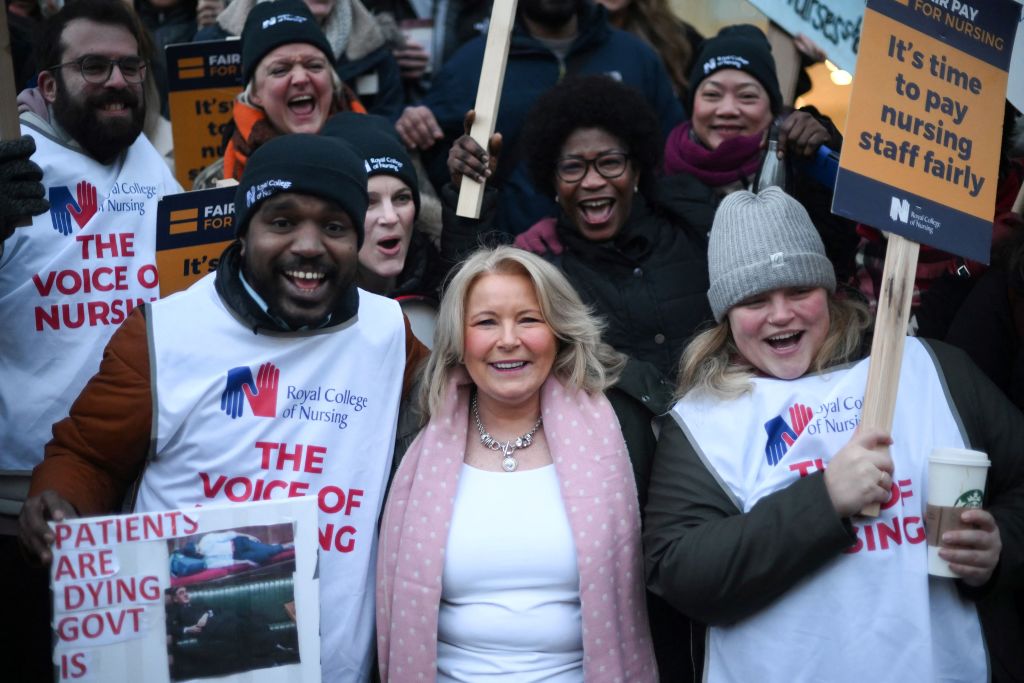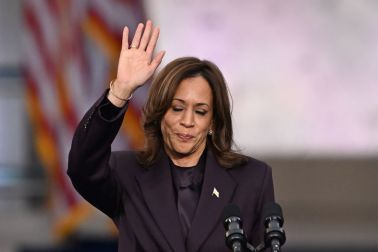As the crisis in the NHS continues, patients may be glad to hear the nurses’ strike is over. The Royal College of Nursing (RCN) has been forced to end its industrial action today after nurses failed to back a vote for more walkouts. But within hours of that announcement, any hope that the NHS might be returning to business as normal fell flat: consultants, the most senior doctors in the service, voted to strike – 86 per cent are in favour, on a turnout of 71 per cent. And while nurses won’t be walking out, many join doctors in remaining unhappy about the pay and working conditions within the health service.
Senior doctors will now stage a 48-hour walkout on 20 and 21 July, with clinicians providing ‘Christmas Day’ cover, which allows for emergency care plus a small level of routine work. This will follow planned strike action by junior doctors in England, which will last for five continuous days from 13 July to 18 July, to result in the longest walkout since the creation of the health service 75 years ago.
The doctors’ union, the British Medical Association (BMA), says that the cut to consultant pay is 35 per cent, factoring in how the pay of senior doctors has fallen by 27 per cent since 2008 after inflation, as well as changes to tax and pensions. Consultants – unlike junior doctors – are not asking for full pay restoration all at once and are instead looking for the government to start giving pay rises that at least match rates of inflation. Last year they received a sub-inflationary increase of 4.5 per cent. But with Prime Minister Rishi Sunak hinting he will block public sector pay rises, these demands seem unlikely to be met.
Doctors, of course, aren’t just after a pay rise: one consultant who voted for industrial action described the need for better working conditions, calling the result a ‘protest vote’.
‘All of us are planning our exit strategy,’ he added. ‘It’s all so demoralising.’ But while almost 90 per cent of those BMA consultant members who voted are in favour of taking industrial action, the medic pointed out that it is unlikely all of these members will be able to strike, given how much the service relies on senior doctors.
And there is a similar feeling of unhappiness among nurses, in particular directed at those who did not vote for strike action. Although turnout was low, of those nurses that did vote, 84 per cent voted in favour of taking action, equating to over 100,000 members. Many feel let down by colleagues who didn’t take part in the nursing union’s latest vote.
The ballot was to achieve a mandate for further strike action, after over half of the nursing union’s members rejected the government’s offer of a 5 per cent pay rise for this year plus a cash payment for the previous one. The government offer followed a historic move by the union to strike, after being balloted on industrial action for the first time in its 106-year history.
After voting to reject the pay deal, the RCN then announced a 48-hour strike at the end of April in a bid for the government to renegotiate. This was called off, however, after being deemed unlawful by the High Court – it fell outside the union’s six-month mandate for industrial action, which had been granted in November. The union had to achieve another mandate for industrial action if its members were to strike again, but it failed to do so when not enough nursing staff took part in the vote. Now, the nurses’ strikes appear to be over – at least for the moment.
Pat Cullen, the RCN’s general secretary, acknowledged the result will be ‘disappointing’ for her members but said that ‘we have so much to be proud of’. Cullen announced that she will be meeting with Rishi Sunak today to discuss the government’s plans for the NHS workforce and its commitment to nurses and care workers. ‘I know staff morale is low and the staffing crisis is set to worsen without immediate action,’ Cullen said. ‘I will be telling him this today.’
But questions are being asked about the declining engagement of the union’s members. The vote to reject the government’s pay deal in April was closer than what was expected and the latest ballot results suggest that the momentum workers had for industrial action has already peaked.
Does it represent an increase in satisfaction with working conditions? Not particularly. In the middle of 2022, nurse vacancies reached a record high of 46,828 – increasing by over a fifth in the space of a year. While there has been a 12,000 increase of nurses this year, particularly thanks to international workers, staff retention remains a problem. The latest data shows that over half of those registered with the Nursing and Midwifery Council left earlier than they’d first planned to, with the majority not looking to return – including younger workers. A third of those UK-educated workers cited ‘burnout’ as a reason for leaving.
Clearly then, there are significant issues with the working conditions facing nurses in England, and ensuring that staff trained in the country stay in their careers remains a priority. But as the results of the latest RCN ballot show, the disconnect existing between union members and their leaders will have to be better addressed if the RCN want to push for more.







Comments